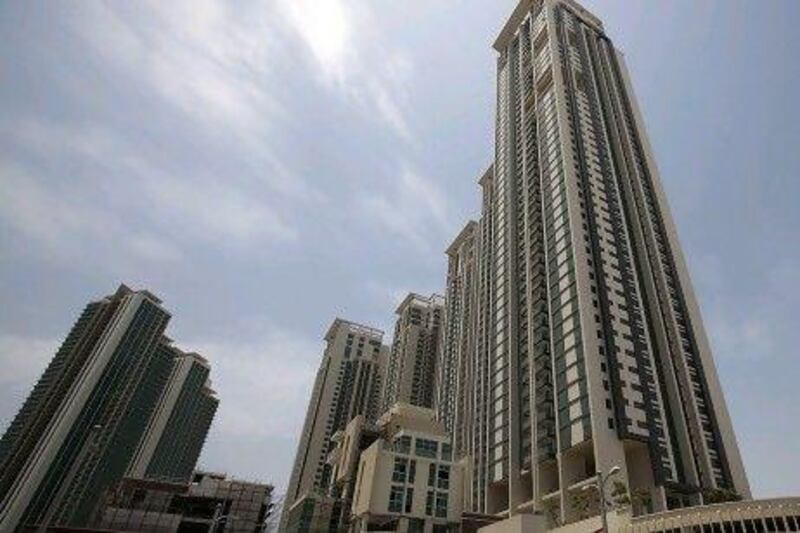Abu Dhabi is starting to experience many of the same issues that plagued Dubai's property market, with more buyers complaining about construction delays and treatment by developers.
Location, location, location:
Industry Insights What's hot and what's not in the world of property. Learn More
Dozens of lawsuits have been filed over stalled projects. And many buyers have been upset at unexpected fees and the quality of construction in newly completed developments, agents say.
"You would have thought Abu Dhabi would have learnt from the mistakes Dubai made," said Paul Preston, the managing director of Elysian Real Estate. "But that doesn't seem to be the case."
The Abu Dhabi property market is still in its infancy compared to Dubai. There are only a few areas where non-citizens can own property, including Reem Island and Raha Beach. Most of the projects were launched between 2006 and 2008 at the height of the property price boom. Problems that hit Dubai three years ago are only now starting to impact Abu Dhabi.
More than 100 buyers have gone to court to demand refunds from Hydra Properties for homes in stalled projects, including Hydra Village, Hydra Avenue and Hydra Golf Walk. The bulk of the homes were sold to overseas buyers.
"It's very frustrating to say to the least," said one buyer who sued for the return of Dh220,000 (US$808,082) in payments for an unbuilt apartment in Hydra Avenue, a Reem Island development.
"We are not one those 'flippers'," said the buyer, who asked not to be named. "We bought with the intent of keeping it for the long term.
Hydra Properties executives did not return calls seeking comment.
Construction delays have also prompted threats of legal action by buyers in Tameer Towers, the $1.9 billion development on Reem Island. The project was initially scheduled for completion in June.
The developer, Tameer Holding Investment, is blaming the delays on problems with a contractor.
But stalled projects are not the only issue. Primary construction on the 13 towers in Marina Square on Reem was completed months ago, but handover to buyers has been delayed by problems getting final permits from government agencies.
"Developers are also having issues," said Mario Volpi, the sales and leasing manager with Cluttons, a property firm. The first large-scale handovers of homes in freehold areas in Abu Dhabi only started in the past year, creating tension between buyers and developers. While some projects have received praise, others have drawn criticism for alleged heavy-handed dealings with clients.
Some buyers have accused developers of charging excessive management fees. Others complain the quality of projects was not what they expected.
One buyer was promised marble floors and instead received tile floors, Mr Preston said. "Many of these developers have never done projects before," he said. "So the handover process is a million miles away from where it should be."
The Government is still in the process of developing systems for registration and regulation of property, as well as a law to govern shared-ownership properties in the emirate.
Abu Dhabi is also feeling the first effects of an oversupply of residential units that sent Dubai prices falling. Rents are down more than 40 per cent since their peak in 2008, making it difficult for many buyers to cover their mortgage costs.
"There is a financial impact as well as frustration," Mr Volpi said. "It just shows it is a maturing market."
twitter: Follow and share our breaking business news. Follow us





